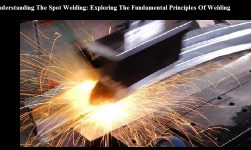
The process of precision investment castings is more than simply a casting method; it is a complex skill that brings ideas to life with an accuracy that is unparalleled. When it comes to the advancement of industries in a world where innovation is the driving force behind progress, precision casting is at the forefront, since it enables the production of complicated and extremely comprehensive metal components.
The purpose of this complete guide is to present you with an in-depth investigation of investment casting, beginning with its historical beginnings and ending with its modern uses. Whether you are an industry expert looking to enhance your knowledge or an enthusiast keen to understand the technique, this post will provide you with an in-depth look at investment casting.
How Does Casting Work?
Casting is a well-established manufacturing technology that can manufacture components in sizes, quantities, and finishes that are suited for a broad variety of industrial sectors such as aerospace, automotive, and aerospace manufacturing.
The first step in the process of metal casting is the construction of a three-dimensional master die, which is then used to build a customized mold or “pattern” in a process that may be repeated. After the mold has been finished, the final product is made by pouring molten material into the cavity that was generated by a pattern. As soon as the material has reached the desired temperature, it is extracted from the mold and may be completed according to the established parameters.
Investment Casting: What Does It Mean?
Precision investment castings is a method that has been around for more than five thousand years and has developed to produce a significant number of the high-quality components that are routinely used in our everyday lives. The application of a ceramic coating, also known as the “investment,” onto a sacrificial pattern allows for the formation of the mold, which is where the method gets its name.
Investment casting is one of the earliest known methods of metal-forming. It is also known as “lost wax” casting due to the fact that the wax that was used to build the pattern is “lost” (melted away) in order to expose the solid mold. It was quicker to make copper, bronze, and gold goods using lost wax casting than through smithing or abrasion. Materials such as clay and beeswax were employed in the ancient lost wax casting process.
The technique has undergone substantial development, especially in response to the need for ever-tighter tolerances and components that are becoming more complex. The patterns that are used nowadays are either manufactured from specialized waxes or polymers, or they are printed using complex machinery. Additionally, experienced casting businesses are able to make very complicated pieces in specialized alloys for a broad variety of commercial and industrial purposes.
The Importance Of Precision Investment Castings
- In the realm of investment casting, the art of accuracy is a delicate ballet that combines science and human expertise. Investment casting is an art that involves steadfast attention to detail, precise preparation, and a thorough grasp of the complexities of the process. In this day and age of precision engineering, when tolerances are measured in microns, investment casting is a highly specialized process.
- It is impossible to exaggerate the significance of accuracy in investment casting, particularly in sectors like as the aircraft industry, the medical device industry, and the oil and gas industry, where precision is a matter of life and loss. The most little departure from the design that was intended may have disastrous effects, putting the product’s safety and effectiveness at risk. The accuracy that is necessary in investment casting is not only an issue of quality control in these sectors; rather, it is a matter of potentially life-threatening consequences.
- Also, investment castings eliminate or significantly reduce the expenses associated with machining by providing near net forms for produced components. Holes, undercuts, slots, and other challenging details that cannot be obtained via other methods may often be produced by this procedure. Near net form has the additional advantage of reducing the amount of material used, which is particularly advantageous when dealing with costly metals like nickel and cobalt alloys.
Bottom Line
As we conclude our exploration of the art of precision in investment casting, it is clear that this ancient technique has evolved into a powerful tool for achieving industrial success. By mastering the intricacies of precision investment castings, manufacturers can create complex, high-quality components with unparalleled precision and accuracy.







